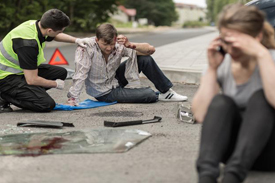Understanding Negligence: Causation
June 2, 2017 by Leave a Comment
Lehigh Valley: 610-435-7400
Philadelphia: 215-567-6616

Dedicated to providing high quality, aggressives representation for the injured.
LEARN MORE Understanding Negligence: Causation
Understanding Negligence: CausationApril 9, 2024 By Metzger & Kleiner Leave a Comment
Factors That Can Increase the Risk of a Fatal Wreck Between 2012 and 2021, there were 507,728 drivers in the United States involved in a fatal … [Read More...]
April 5, 2024 By Metzger & Kleiner Leave a Comment
Pedestrian Deaths Have Fallen Amidst an Ongoing Safety Crisis Since 2019, pedestrian fatalities have been near or at record levels. As an example, … [Read More...]
© 2024 Metzger & Kleiner All Rights Reserved. Site Map | Disclaimer | Allentown Car Accidents | Allentown Truck Accidents

Speak Your Mind